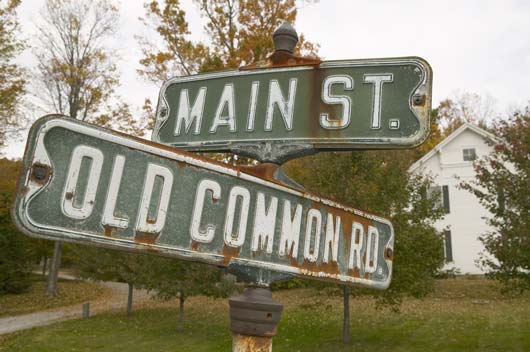
The high school principal, voice shaky, eyes glimmering with tears, stood behind the podium. Letting bad teachers go was part of her job, she explained, the next words scraping against her throat. Letting good teachers go was just…painful. I sat in the front row, scribbling notes into a pad, asking questions about procedure and policy, safe in the detachment instilled by two decades as a journalist. I had been here before. I’d covered teacher strikes and school layoffs. I’d interviewed dozens of people who lost their jobs and had to remake their lives. I’d even survived furloughs and buyouts at several newspapers.
This announcement, that a school district facing a serious budget gap would not renew the contracts of about 350 teachers on a first-year probationary contract, might have been just another assignment.
But it was not. This time, I was not there as a journalist covering the news. This time, I was a teacher facing the loss of my job. After all, I still work as a freelance journalist and although my school district did end up offering me a contract, I decided instead to teach two classes this fall at a local college.
Read Related: Tips to Reinvent Yourself Professionally
Now, it seemed like an act of madness.
The sound of sobbing grew louder around me. There were tear-stained faces and red-rimmed eyes. Stunned expressions. Grim looks. Anger. Fear. Confusion. The air seemed to hang thick with shock and sadness. Then, the school principal began to hand out letters to the teachers whose contracts would not be renewed. One had my name on it. As the moment began to register, my stomach slowly sank with the realization that I could soon face joblessness for the first time in my adult life.
Yet, at the same time, I did not share the despair or the panic of many seated around me. I did not fear the unknown in the same way they seemed to that day. Because I had already been down that path. I’d already reinvented my life and my career once. So, if I had to, I know I could do it again. It hasn’t been an easy road—nor a change I made lightly.
I didn’t leave the newsroom because the journalism business was in the midst of turmoil and uncertainty. (Although it was and still is.) I didn’t leave because my job was in danger. I didn’t leave because I had grown tired of my chosen profession. (There is still nothing I love quite as much as the thrill of a good story.) I left because I wanted to strike out into new territory. After several years of volunteering as a mentor and teacher on college journalism projects, I wanted to try teaching in a classroom full-time.
As I made the shift from journalist to teacher, I learned lessons that anyone considering a career change should weigh:
- Think about it. I mulled the notion over for more than a year before taking the first step. I talked it over with friends and family and other people who had changed careers.
- Do your homework. I looked into teacher training programs, spent time as a classroom observer, talked with teacher friends about their jobs, and studied my finances carefully.
- Think about it (and your pocketbook) some more. For me, changing jobs would mean a substantial pay cut (first-year teachers in Texas earn about half of what I was making as a journalist) and a complete change in lifestyle at an age when security is often more tempting than adventure. It would also require completing an alternative teacher certification program, passing two state certification exams and finding a teaching job.
Yet, I was still luckier than thousands of other people across the country who were forced to start new careers out of necessity, not choice.
Between 5.3 and 8.4 million Americans have started so-called “encore careers,” according to a 2008 survey conducted by the MetLife Foundation and Civic Ventures, a think tank that promotes community and social contributions by mid-career and older workers. Of workers ages 44-70, half said they were interested in encore careers in education, health care and the nonprofit sector, the survey found.
Layoffs and job losses created by the failing economy, and the realization that nest eggs are not enough to last through retirement, have spurred many people unwillingly into reinvention. In May, the unemployment rate stood at 9.1 percent, with 13.9 million out of work, according to the Bureau of Labor Statistics.
I won’t pretend starting over is easy for anybody. Our careers become our identity and our incomes often become our validation. A new career or a smaller income can shake the very foundation of our lives.
It forces us to re-examine who we really are, what we really believe, and what we are capable of—all while competing in new arenas with people who often are younger and more experienced.
As a journalist, I could do my job without hesitation. After decades in a newsroom, the skills and steps needed to produce stories had become second nature to me. As organic as taking a breath.
Read Related: Encore Careers, Are You Ready for Your Second Act?
As a novice teacher, I had to think through every word, every move, every lecture and lesson. I spent hours of my own time researching curriculum, searching out ways to teach grammar and literature, reading about classroom management techniques and teaching methods.
But, like many people carving out encore careers, I also learned that my past enriched my present. I sprinkle reporting stories into my lesson plans and encourage my students to become educated news consumers. My writing background makes me a better writing teacher. And, my students have told me, they think my journalism credentials give me street credibility.
According to the MetLife/Civic Ventures survey, having to learn new technology and skills or go back to school is a major issue in pursing encore careers, as is the loss of seniority or status.
Many days during my transition, I often felt displaced—not quite a full-fledged teacher, yet no longer a full-time journalist. I still don’t know quite how to respond when someone asks me what I do for a living.
I am not exactly who I was before. I am someone more. I am a teacher who has learned that not only is it possible to remake myself, but also exhilarating.
Instead of settling into my life, I shook it up. Instead of clinging to the safe road, I veered off into an unexplored path.
Instead of holding fast to what I have always been, I let go—and became a new reinvented me.
After more than 20 years as a full-time journalist, Monica Rhor left the newsroom almost two years ago to teach high school English and Journalism in a suburban Houston school district.











